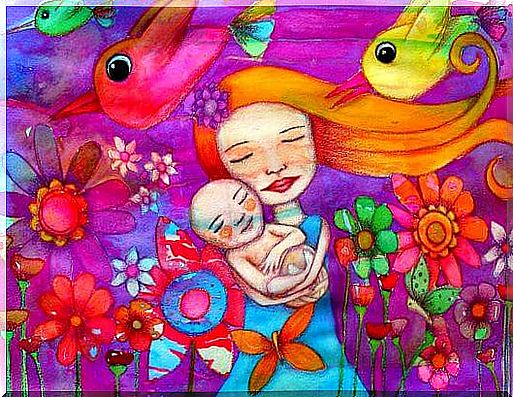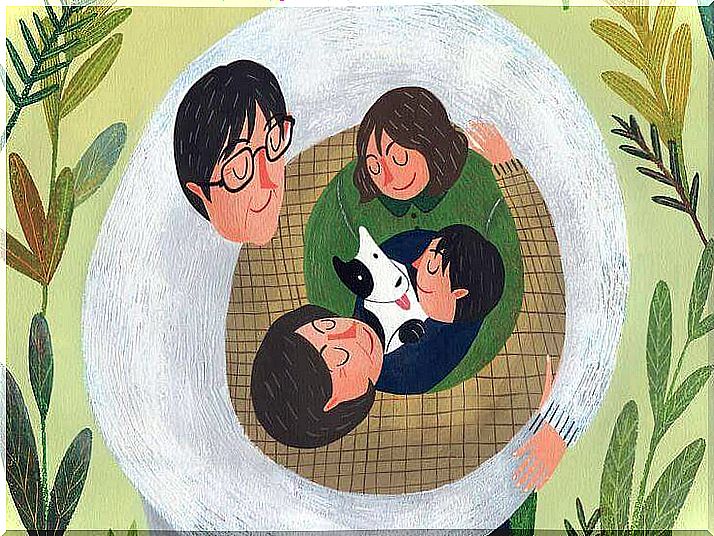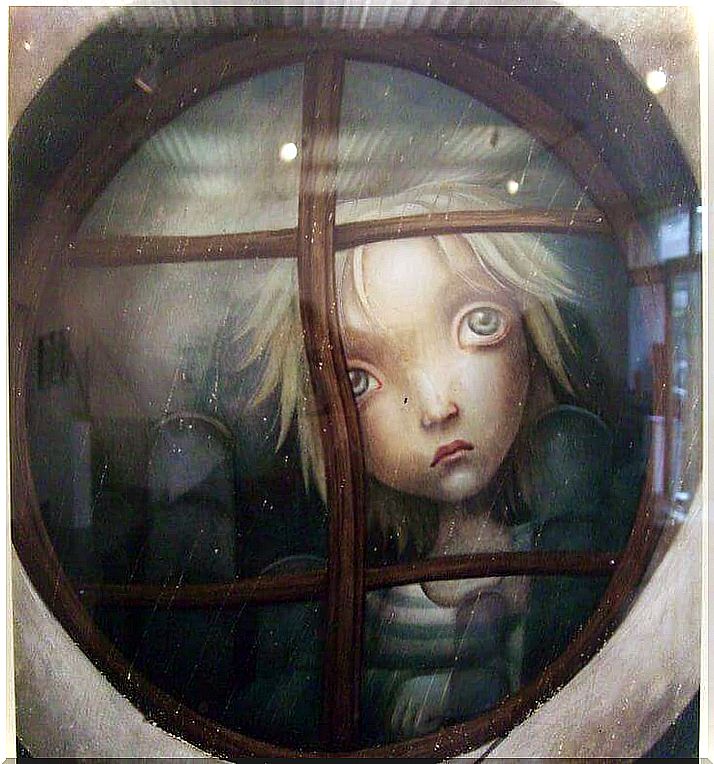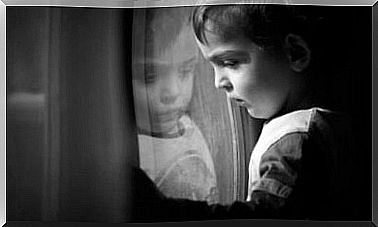Children With Special Needs Do Not Need Pity

Children with special needs do not need pity. They need other attitudes that everyone can surely give them: naturalness, love and understanding. No one wants others to look at them with pity in their eyes.
A compassionate look can be given for the best possible purpose, but in reality it can stigmatize and underestimate the person you are looking at. When someone looks at you with pity in their eyes due to a physical defect, a tough financial situation or a mistake you have made, it makes you feel even worse. It makes you think of all the things you did wrong that caused this pity.
The special child and his family go through endless stressful situations that can be done better if they feel a good social support around them. We will describe some of the situations that these families and children go through to help you develop an empathetic and sufficient attitude towards them.
Every pregnancy is its own world, but all mothers and fathers want it to go as smoothly as possible. They want their future children to have the best possible health in order to meet the demands of an increasingly demanding world.
Some studies may detect certain genetic problems during pregnancy due to teratogens, while other studies may detect

In other words, the diagnosis is already known to many parents during pregnancy. But for others, the diagnosis comes at birth, and in other cases, the baby’s difficulties will not become apparent until later in life. Whatever the case, it is a difficult and complicated diagnosis that causes great emotional impact.
It is at this diagnosis that the woman, alone or with her partner, must accept that her motherhood will be different, not better or worse… and this is a fundamental moment for future management. The information should be accurate, concise and conveyed with caution and understanding.
This is the time to choose the right information, to develop as a parent a plan to manage the child’s care together, to psychologically arm themselves and be aware that raising this child will be a marathon, with the additional difficulty of having to confront the unknown .

Little by little, the parents will accept the diagnosis and dive into the hard work of raising this child, with all the strength and hope needed to give the child what it needs. Rehabilitation meetings, to enable a good environment for the child and a project based on love, which is what the child needs, just like all other children.
Children with special needs have a lot to teach us. They are struggling to slowly overcome all the difficulties they have, and they do so with few complaints and a smile on their face.
Sometimes their emotions are so intense that they awaken the very core of us, but the people around them must give them a picture of positivity. They need to let them know they are there to help them with today’s little challenges.
People with special needs open your heart and keep nothing to themselves. They are pure emotion in a body that may not respond to them. They are grateful and extremely loving. They judge with eyes full of love, and their silence is never uncomfortable. It is a silence of peace and reflection, which is also ours.

They often visit more hospitals and rehabilitation centers in a couple of months than most of us do throughout our lives. They do not deserve glances of pity, for there is nothing to pity them for. They constantly give us lessons about struggles and life. Clean, beautiful and immeasurably healing.
Depending on their problems, children may find it more or less difficult to adapt to their environment. Unfortunately, people who were not born with an intellectual disability will behave somewhat cautiously towards them, with compassionate eyes, sadly mumbling about how awful “that” must be.
They even make comments that hurt: “Poor you”, “You have received this burden and it is not fair”, “God works in unfathomable ways”. Some ignorance is what really affects them.
These types of people should be kept away from the child and its parents, and should be ignored because that is what they have earned. Most people are good, educated and respectful of these problems, so you should not pay much attention to them.

The child’s relatives should handle the situation with naturalness, as a medical development problem that should be tackled with the best professionals and people who above all else love to see the child smile.
We should fight for the child’s integration in playgrounds and at school, and to eliminate architectural barriers. Too little justice, good doctors and an environment full of love for the child can cause a miracle to happen: that the child becomes happy.
The child’s family, friends, colleagues, professionals… they can not ask for anything else. Because if the child is happy despite the situation… what is more important than that?









